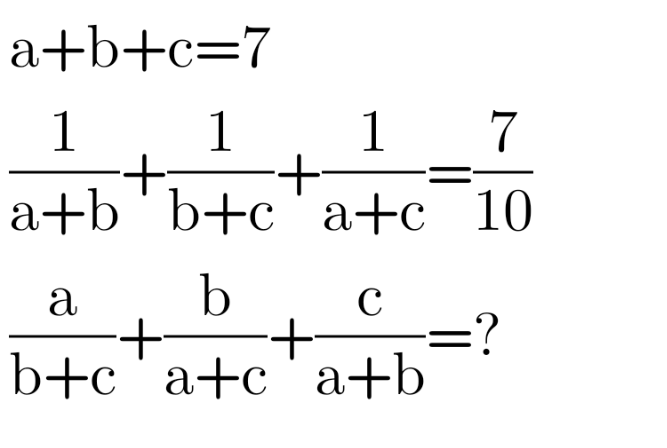
AllQuestion and Answers: Page 1035
Question Number 116601 Answers: 2 Comments: 0
Question Number 116595 Answers: 1 Comments: 0
Question Number 116590 Answers: 2 Comments: 0
$$\:\int\:\frac{\sqrt{\mathrm{x}}}{\mathrm{1}+\mathrm{x}^{\mathrm{3}} }\:\mathrm{dx}\:=? \\ $$
Question Number 116588 Answers: 2 Comments: 0
Question Number 116586 Answers: 0 Comments: 0
Question Number 116578 Answers: 3 Comments: 0
Question Number 116576 Answers: 3 Comments: 1
Question Number 116564 Answers: 2 Comments: 0
$$\int\:\frac{\mathrm{dx}}{\mathrm{x}+\sqrt[{\mathrm{3}\:}]{\mathrm{x}}}\:? \\ $$
Question Number 116560 Answers: 1 Comments: 1
Question Number 116557 Answers: 2 Comments: 0
Question Number 116556 Answers: 1 Comments: 0
Question Number 116555 Answers: 1 Comments: 0
Question Number 116554 Answers: 1 Comments: 0
Question Number 116538 Answers: 0 Comments: 2
Question Number 116533 Answers: 2 Comments: 0
Question Number 116529 Answers: 1 Comments: 1

Question Number 116524 Answers: 1 Comments: 1
Question Number 116523 Answers: 2 Comments: 0

Question Number 116520 Answers: 1 Comments: 0
Question Number 116516 Answers: 2 Comments: 0

Question Number 116513 Answers: 1 Comments: 0
Question Number 116512 Answers: 0 Comments: 1
Question Number 116509 Answers: 2 Comments: 0
Question Number 116507 Answers: 1 Comments: 0

Question Number 116503 Answers: 2 Comments: 0
Question Number 116501 Answers: 1 Comments: 0
Pg 1030 Pg 1031 Pg 1032 Pg 1033 Pg 1034 Pg 1035 Pg 1036 Pg 1037 Pg 1038 Pg 1039
